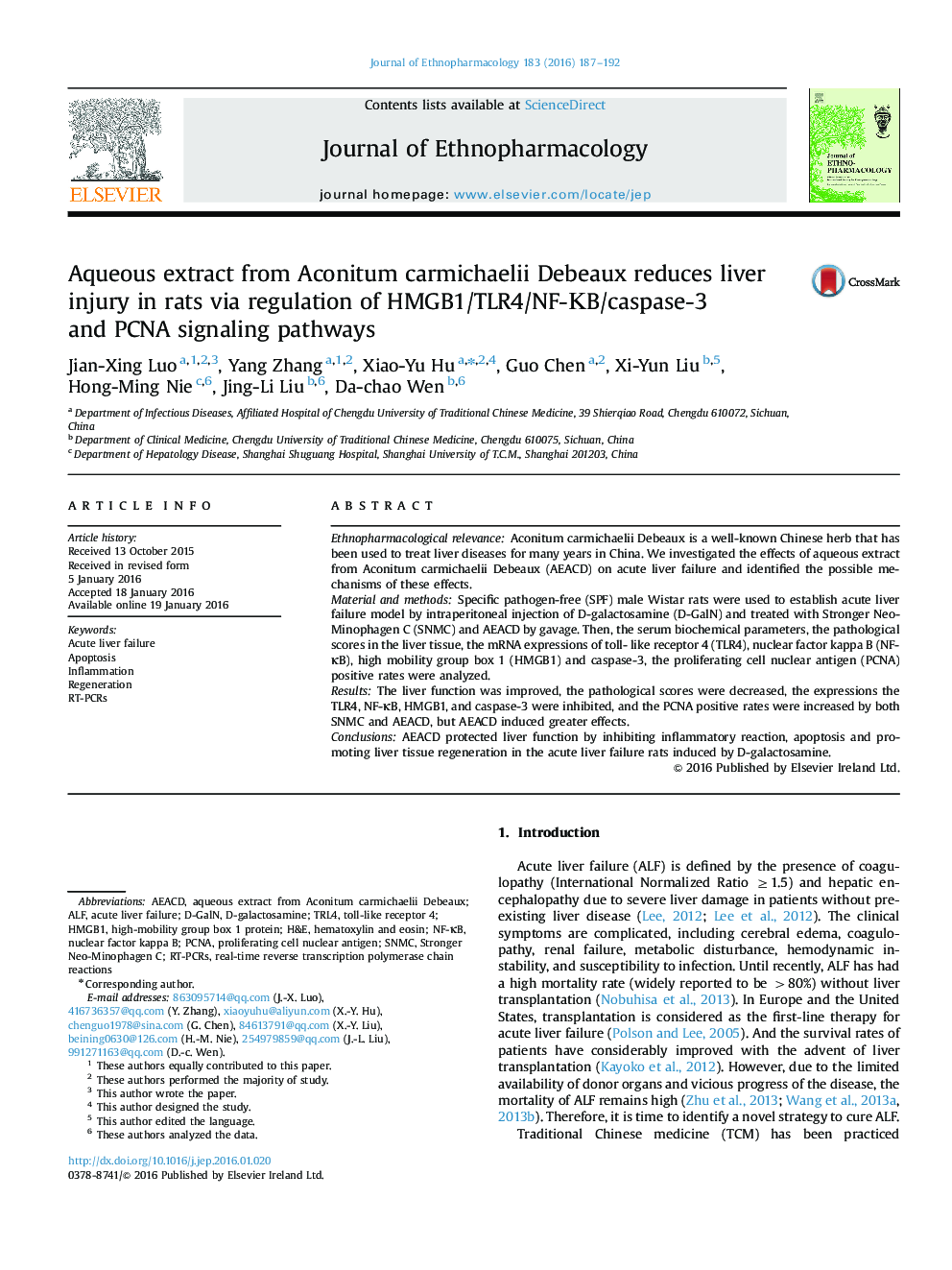| Article ID | Journal | Published Year | Pages | File Type |
|---|---|---|---|---|
| 2544879 | Journal of Ethnopharmacology | 2016 | 6 Pages |
Ethnopharmacological relevanceAconitum carmichaelii Debeaux is a well-known Chinese herb that has been used to treat liver diseases for many years in China. We investigated the effects of aqueous extract from Aconitum carmichaelii Debeaux (AEACD) on acute liver failure and identified the possible mechanisms of these effects.Material and methodsSpecific pathogen-free (SPF) male Wistar rats were used to establish acute liver failure model by intraperitoneal injection of D-galactosamine (D-GalN) and treated with Stronger Neo-Minophagen C (SNMC) and AEACD by gavage. Then, the serum biochemical parameters, the pathological scores in the liver tissue, the mRNA expressions of toll- like receptor 4 (TLR4), nuclear factor kappa B (NF-κB), high mobility group box 1 (HMGB1) and caspase-3, the proliferating cell nuclear antigen (PCNA) positive rates were analyzed.ResultsThe liver function was improved, the pathological scores were decreased, the expressions the TLR4, NF-κB, HMGB1, and caspase-3 were inhibited, and the PCNA positive rates were increased by both SNMC and AEACD, but AEACD induced greater effects.ConclusionsAEACD protected liver function by inhibiting inflammatory reaction, apoptosis and promoting liver tissue regeneration in the acute liver failure rats induced by D-galactosamine.
Graphical abstractAconitum carmichaelii Debeaux improved the liver function and reduced the hepatic pathological damage of rats with ALF induced by D-GalN by the inhibition of the activation of HMGB1/TLR4/NF-κB/ caspase-3 inflammatory and necrotic pathway and the promotion of the PCNA expression.Figure optionsDownload full-size imageDownload high-quality image (229 K)Download as PowerPoint slide
